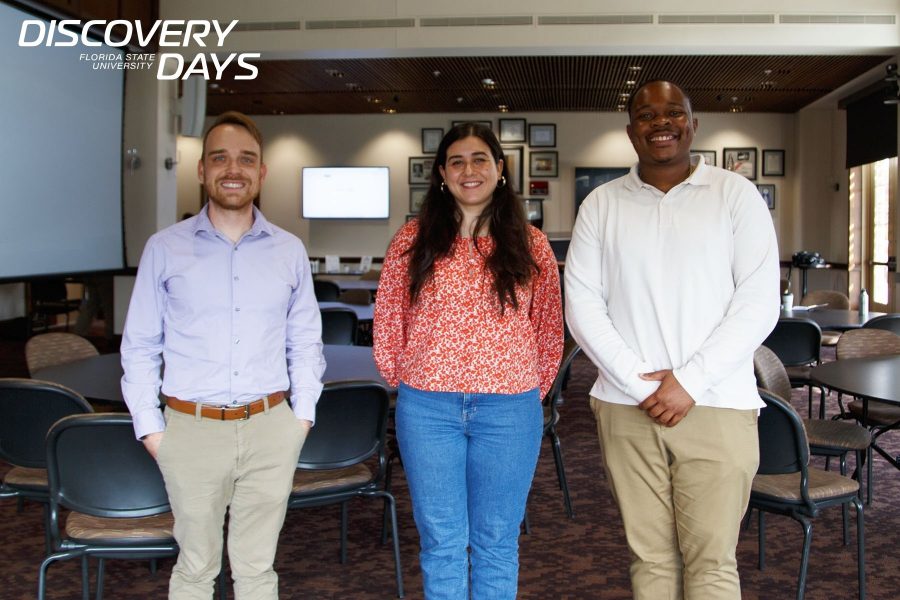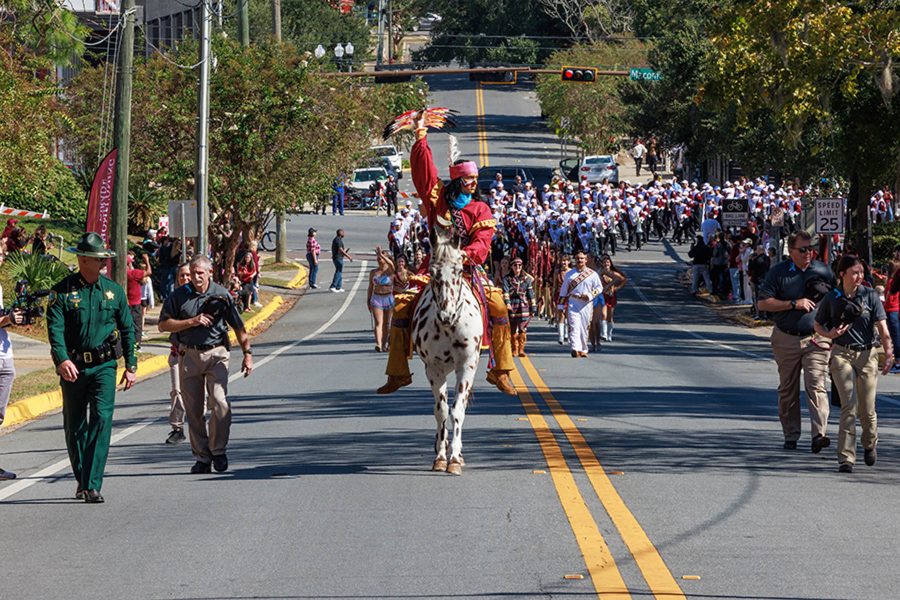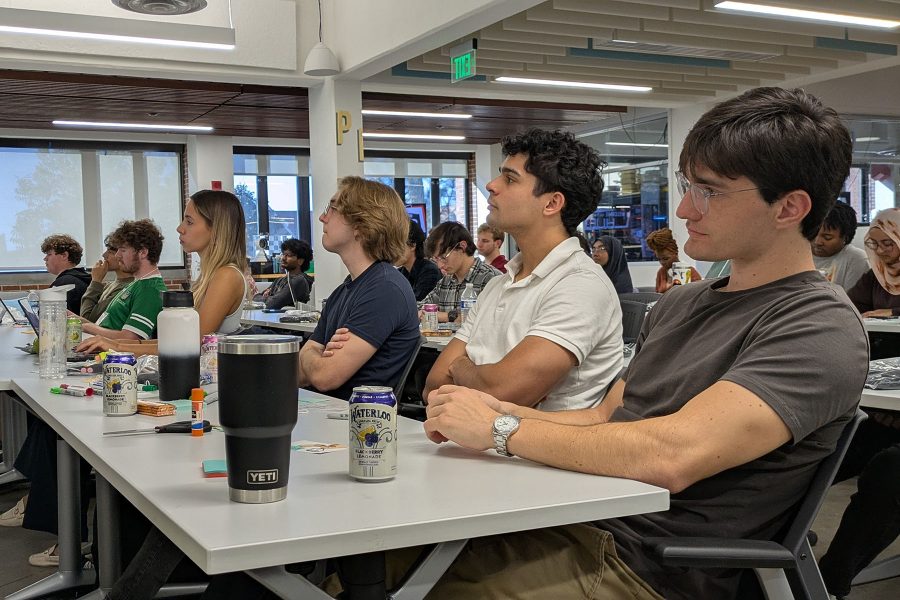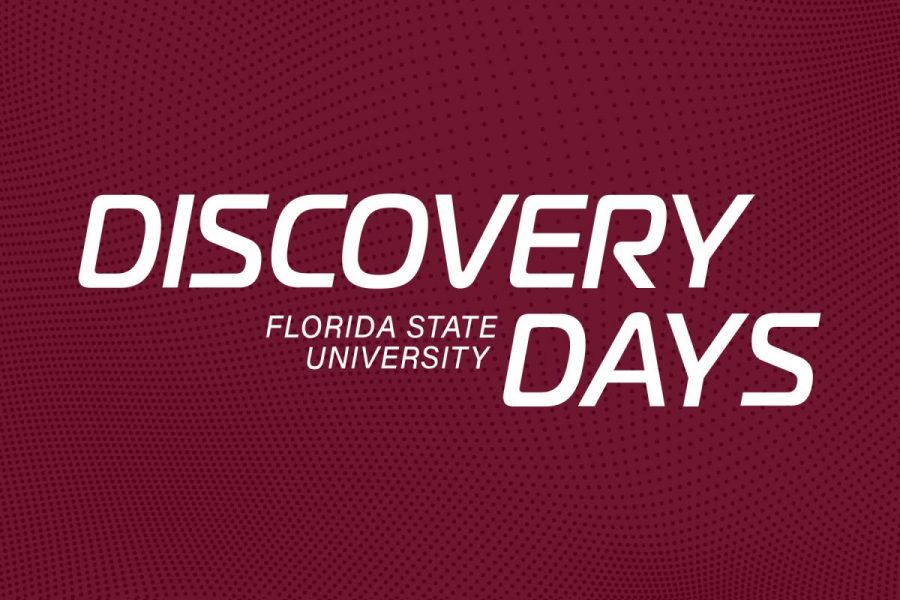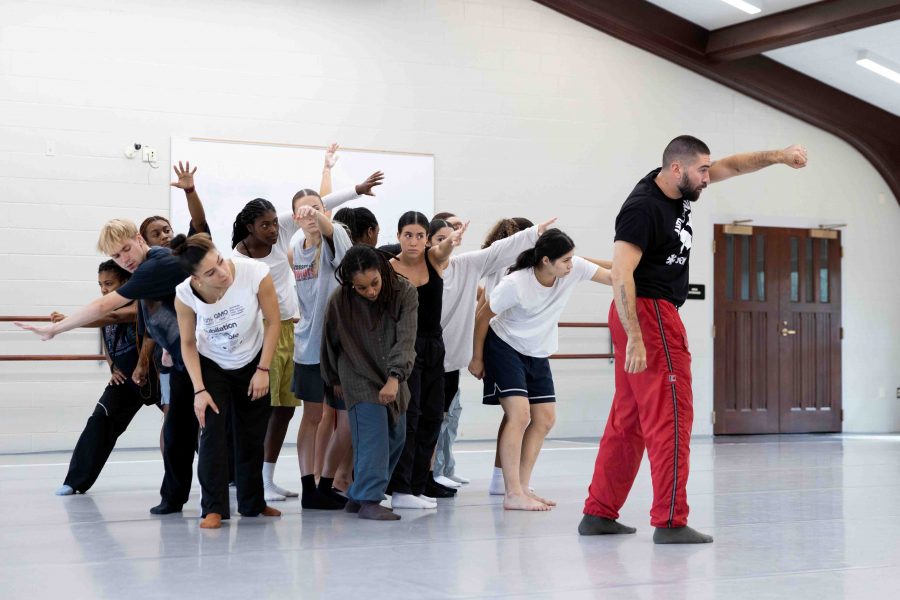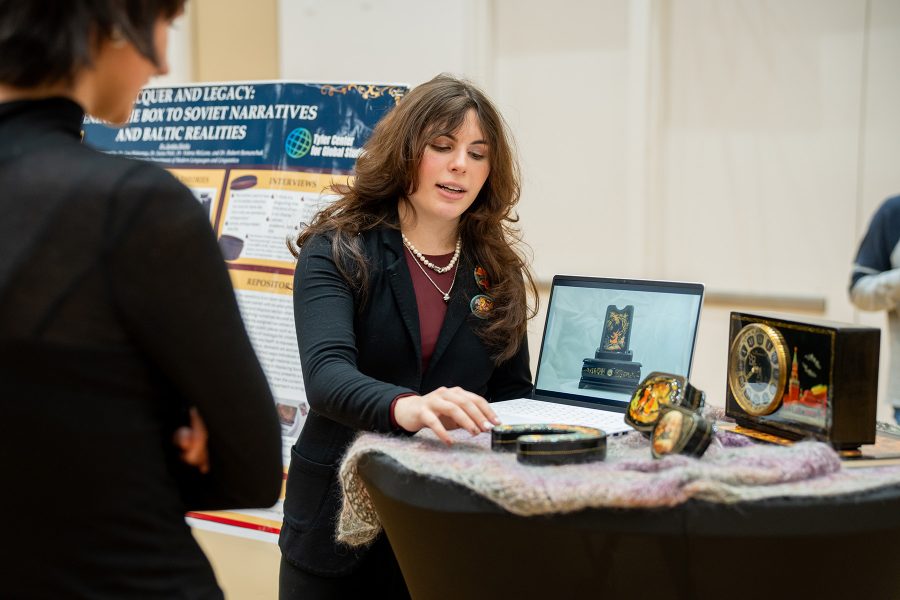Florida State University doctoral students spotlighted at inaugural Graduate Research Showcase
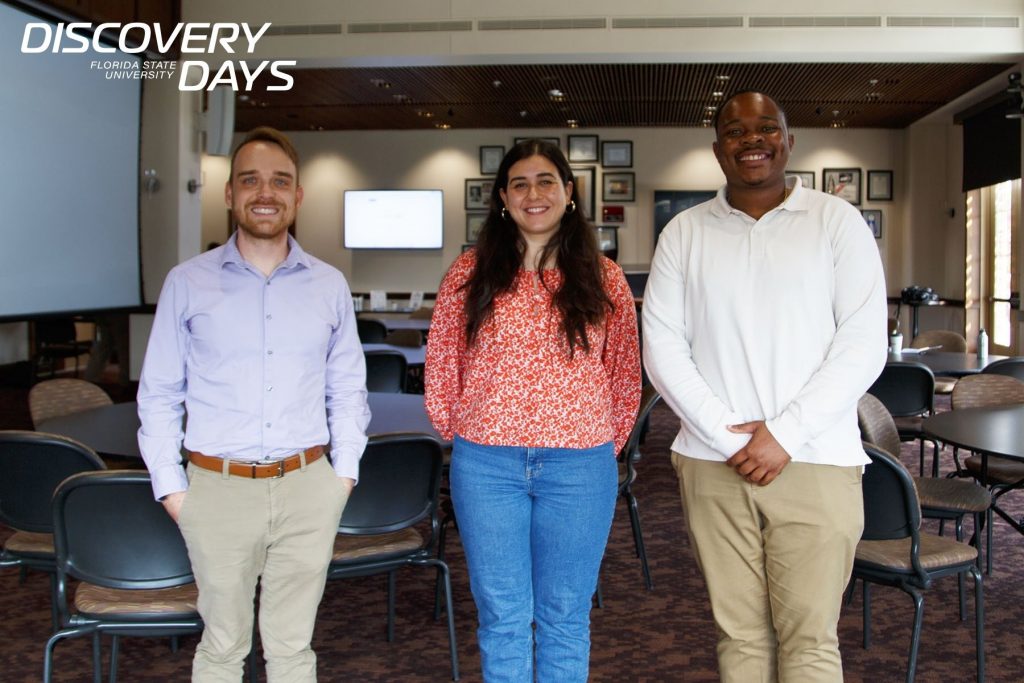
Florida State University’s Discovery Days continued its celebration of research excellence with the inaugural Graduate Research Showcase, where doctoral students shared insights from their academic journeys and groundbreaking research.
Hosted by the Office of Graduate Fellowships and Awards, the event spotlighted the dedication and innovation of FSU’s graduate scholars.
“This showcase isn’t just about sharing research — it’s about recognizing the drive and curiosity that define our graduate students,” said Keith McCall, acting director of the Office of Graduate Fellowships and Awards. “FSU graduate students are emerging experts in their fields, engaged in rigorous and deeply meaningful research that pushes scholarship forward.”
“This showcase isn’t just about sharing research — it’s about recognizing the drive and curiosity that define our graduate students. FSU graduate students are emerging experts in their fields, engaged in rigorous and deeply meaningful research that pushes scholarship forward.”
— Keith McCall, acting director of the Office of Graduate Fellowships and Awards
Attendees engaged in various disciplines during the presentations, including history, biological science and higher education, and offered constructive feedback to support the students’ continued success.
Noah Cole, a doctoral candidate in the College of Arts and Sciences Department of History, kicked off the showcase by presenting his research on political factionalism in 15th-century Northern Italy. Cole explored how preachers of the time interpreted factional conflict not just as a social phenomenon, but as a deeply ideological and emotional force.
His work expresses that factionalism should be treated as a conceptual category — comparable to modern political identities — and that religious leaders, through their Latin sermons, acted as political theorists shaping civic discourse.
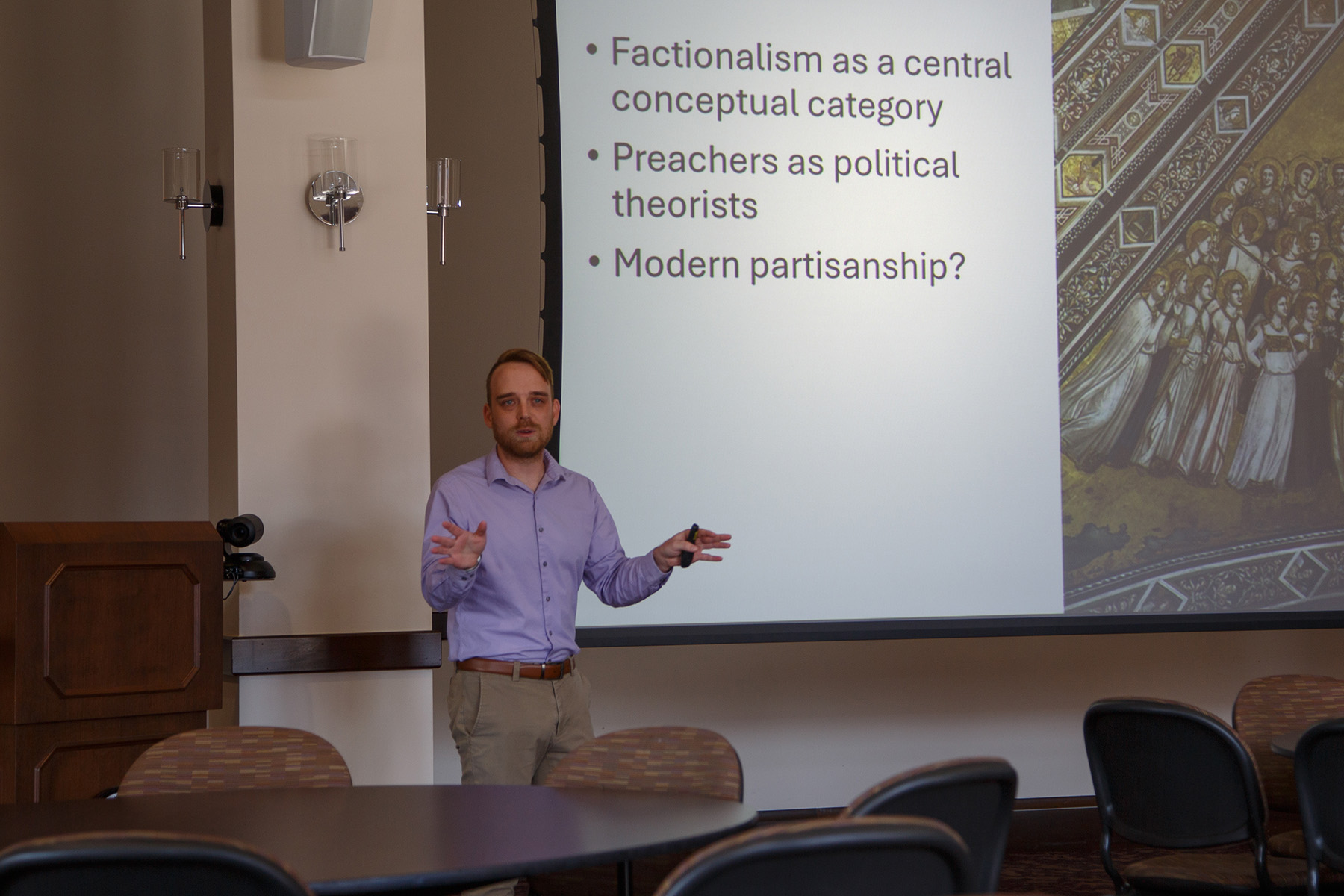
During his presentation, Cole shared insights from his analysis of sermons by three influential figures, showing how each grappled with the nature and impact of factionalism. He highlighted how these leaders framed partisanship as a moral and spiritual crisis. Cole’s research suggests that medieval preaching played a critical role in defining political identity and offers a lens through which to reconsider the emotional roots of modern partisanship.
Penelope Ales, a doctoral candidate in the College of Arts and Sciences Department of Biological Science, presented her research on how crop arrangement affects insect herbivore behavior in agricultural systems.
Her work focuses on intercropping, a method of planting multiple crops together, as a sustainable alternative to pesticide use. Ales presented her recently conducted field experiment using kale and elephant garlic to test how different planting patterns — monocultures, alternating rows, block mixtures and checkerboard arrangements — influence insect abundance, predator presence and crop damage.
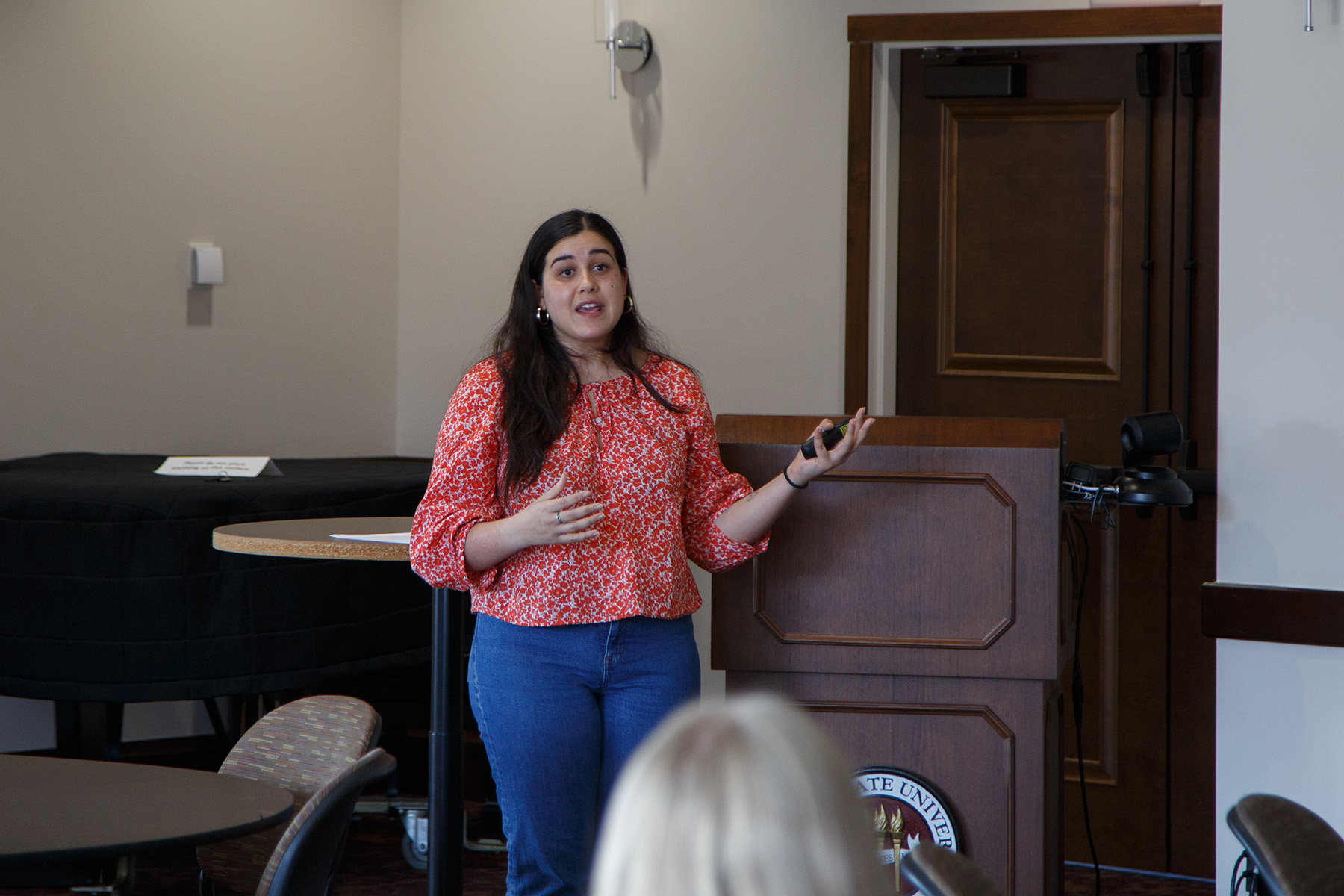
Ales explained how planting density and spatial arrangement can shape pest and predator dynamics, supporting the resource dilution hypothesis. Her findings suggest that small farms could benefit from exploring crop combinations that promote natural pest control and other ecosystem services.
Johnnie L. Allen Jr., a doctoral candidate in the Higher Education program in the Anne Spencer Daves College of Education, Health, and Human Sciences, finished the showcase by presenting his research on how Black college men at historically Black colleges and universities (HBCUs) develop leadership identity and navigate gender expression. Allen explored how students engage with leadership learning and STEM disciplines, focusing on how personal experiences and institutional environments shape their understanding of masculinity and leadership.
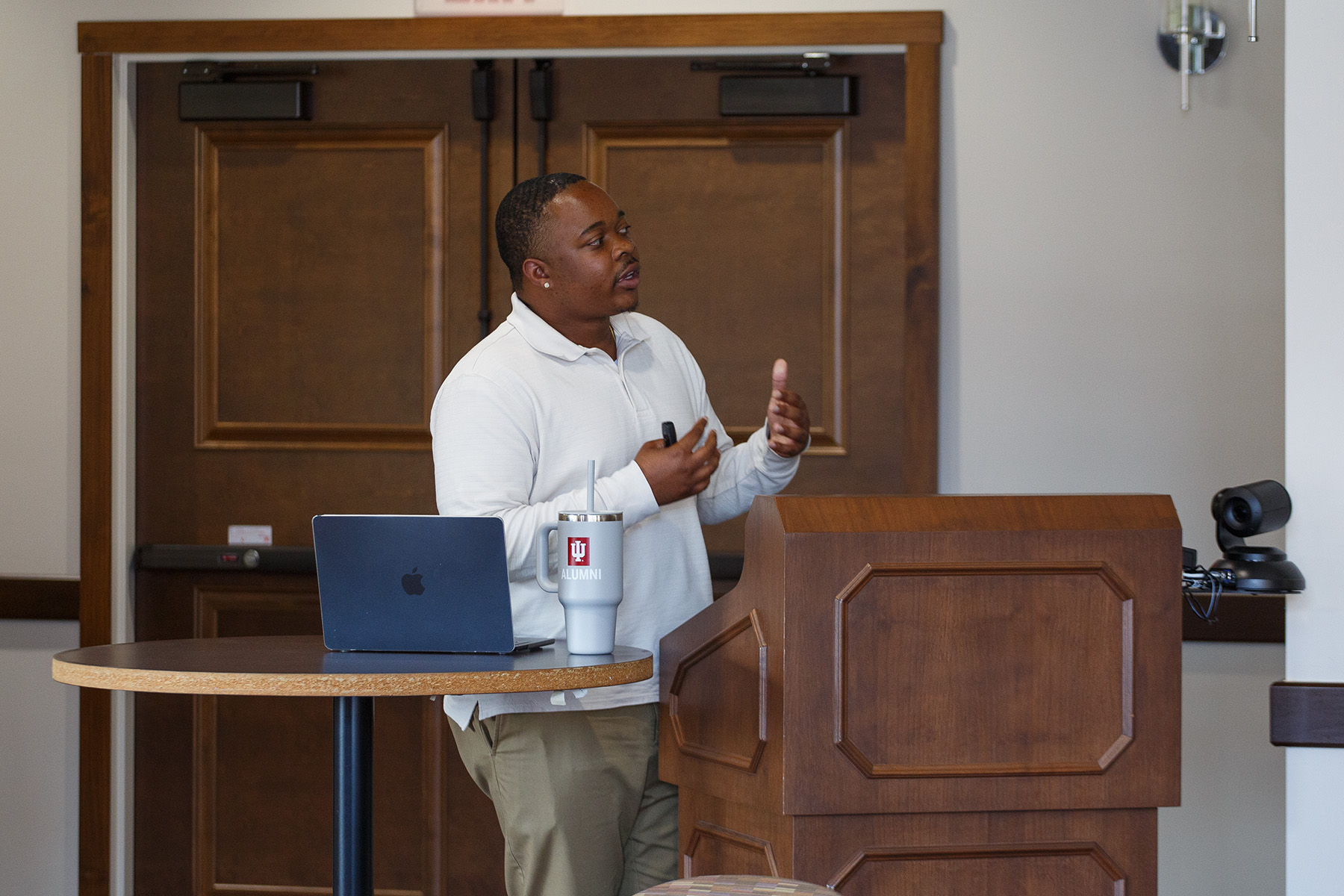
During his presentation, Allen shared insights from interviews, visual mapping and photo-based reflection activities with students involved in leadership programs or STEM fields. He emphasized the importance of recognizing expressions of identity and fostering inclusive leadership development.
Allen’s research contributes to further conversations about student success at minority-serving institutions and highlights the value of creating spaces where students can reflect on their experiences and define leadership in ways that are authentic to them.
For more information about the Office of Graduate Fellowships and Awards, visit ogfa.fsu.edu.
The post Florida State University doctoral students spotlighted at inaugural Graduate Research Showcase appeared first on Florida State University News.





